A Complete guide to solar panels for commercial buildings
Solar panels for commercial buildings investment
As businesses look for ways to reduce energy costs and increase sustainability, solar energy has become a popular solution. One of the most common questions asked by business owners is, “Are solar panels right for my commercial building?”
In this complete guide, we’ll cover everything you need to know about solar energy for commercial properties, including which roofs are suitable, what a photovoltaic (PV) system is, the best type of solar panels for commercial use, and whether solar panels are worth the investment for your business.
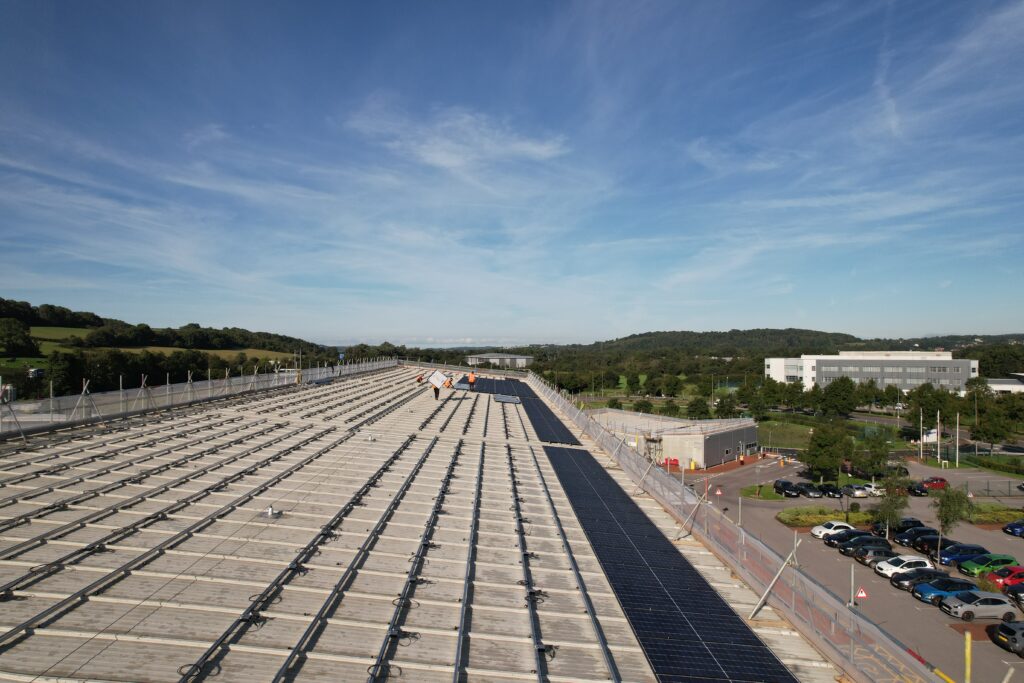
What Roofs are Suitable for Solar Panels?
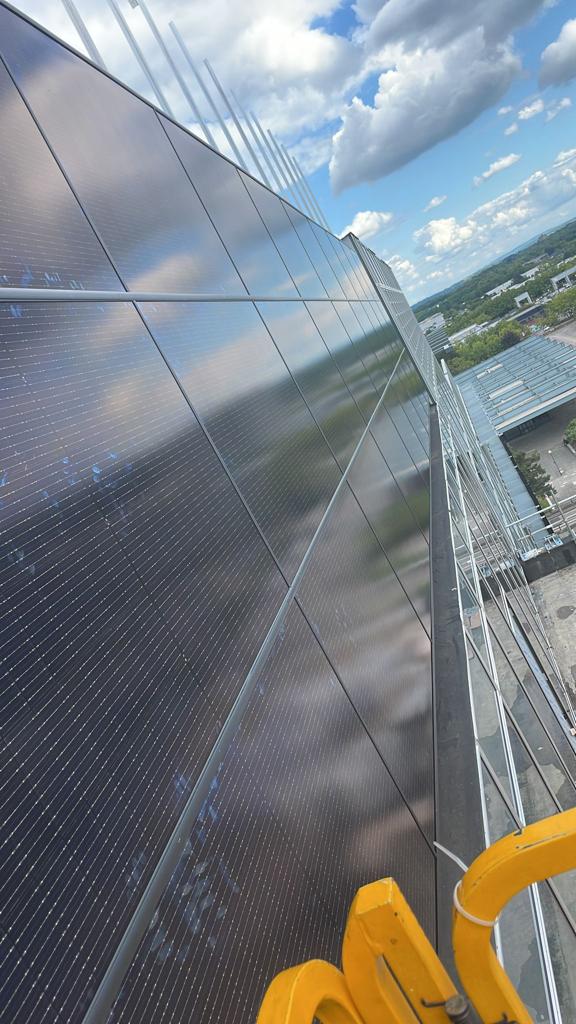
When it comes to installing solar PV panels on commercial buildings, not every roof type is equally suitable. The ideal roof for solar panels should be large, structurally sound, and positioned to capture as much sunlight as possible.
✅ Flat Roofs: Most commercial buildings have flat roofs, which are perfect for solar panel installations. Flat roofs allow for easy installation of solar racking mounting systems like Val Der Valk or the Sunfixings East West Tegra system to position the panels at the optimal generating angle.
✅ South-Facing Roofs: Roofs that face south will capture the most sunlight throughout the day, making them ideal for solar panels. East- or west-facing roofs can also work efficiently but may capture less sun rays.
✅ Shading: The roof should have minimal shading from nearby buildings or trees, as shade can reduce the efficiency of the solar panels.
In cases where shading is a concern, we will design, simulate, and recommend an optimised setup using SolarEdge, Tigo, or microinverters to ensure your system operates at peak performance.
✅ Strong Structural Integrity: The roof must be able to support the weight of the panels and the associated mounting equipment. Older roofs may need reinforcement before installation. Structure surveys are carried out at the feasibility stage to ensure your roof can support them.
✅ South Facing Walls: These are becoming very popular with businesses that don’t have enough roof space to fit the required size. Using a Facade solar mounting system is a great way to increase the size of your PV systems.
What is a PV System for a Commercial Building?
A photovoltaic (PV) system is a solar power system that converts sunlight into electricity. For commercial buildings, a PV system typically consists of:
✅ Solar Panels: These collect sunlight and convert it into direct current (DC) electricity.
✅ Inverters: These convert the DC electricity into alternating current (AC) electricity, which is used to power up a business electrical apparatus.
✅ Mounting Systems: Upon a site assessment being carried out, our technicians will recommend the appropriate solar mounting system based on your roof type. Solar mounting systems are various types of bracketry-to-rack equipment used to fix panels in place.
✅ Monitoring Systems: These allow businesses to track the solar system’s performance and manage energy usage. This also provides detailed information on how the system is performing and reports any underlying defects.
A well-designed solar PV system can supply a significant portion of a commercial building’s electricity needs, reducing reliance on the National Grid and lowering energy bills.
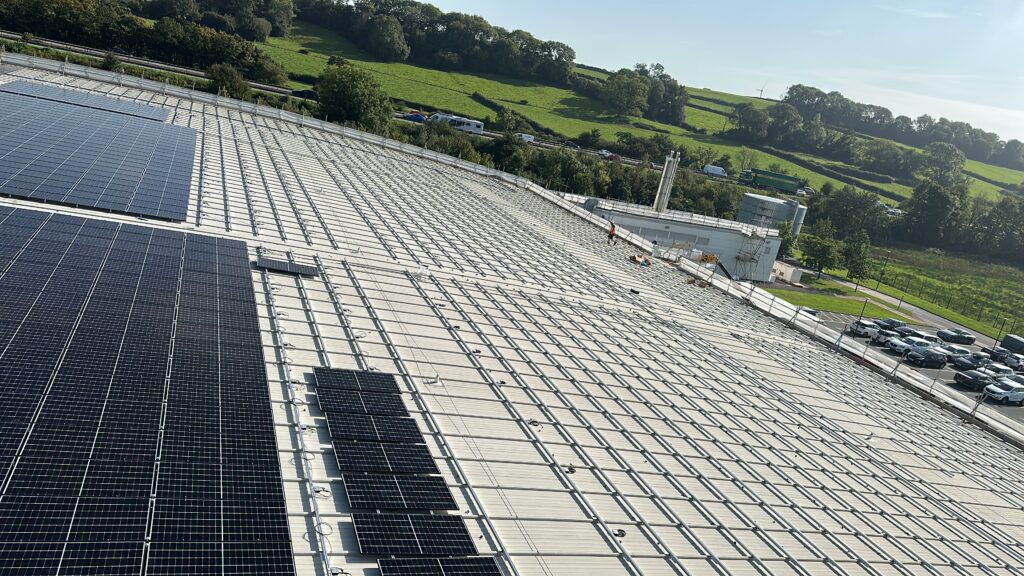
What Type of Solar Panel is Best for Commercial Use?
When selecting solar panels for commercial use, choosing the right type for your business’s energy needs and roof conditions is important. The most common types of solar panels for commercial buildings are:
✅ Monocrystalline Panels: Known for their high efficiency, monocrystalline panels are the most effective at converting sunlight into electricity, making them ideal for businesses with limited roof space. They have a sleek appearance and a longer lifespan.
✅ Polycrystalline Panels: While slightly less efficient than monocrystalline, polycrystalline panels are more affordable and are suitable for larger roofs where space is not an issue.
✅ Thin-Film Panels: These panels are lightweight and flexible, making them ideal for roofs that can’t support much weight. However, they are less efficient, meaning more panels are required to produce the same amount of electricity.
For most commercial buildings, monocrystalline panels offer the best combination of efficiency and durability, especially for businesses looking to maximise energy production in a limited space.
How Many Solar Panels for a Commercial Building?
The number of solar panels required for a commercial building depends on several factors, including the size of the building, energy consumption, available roof space, and the type of solar panel being installed.
To estimate the number of solar panels needed, you must first determine your building’s energy usage. This is typically measured in kilowatt-hours (kWh) on your monthly energy bill. A general formula to estimate the number of panels required is:
Energy Needs ÷ Output per Panel = Number of Panels
For example, if your commercial building consumes 50,000 kWh per year and each solar panel generates approximately 400 kWh annually, you will need:
50,000 kWh ÷ 400 kWh = 125 solar panels
Additionally, the available roof space and the efficiency of the panels will affect the final number. Businesses with limited roof space may opt for more efficient panels, such as monocrystalline, to meet their energy needs with fewer panels.
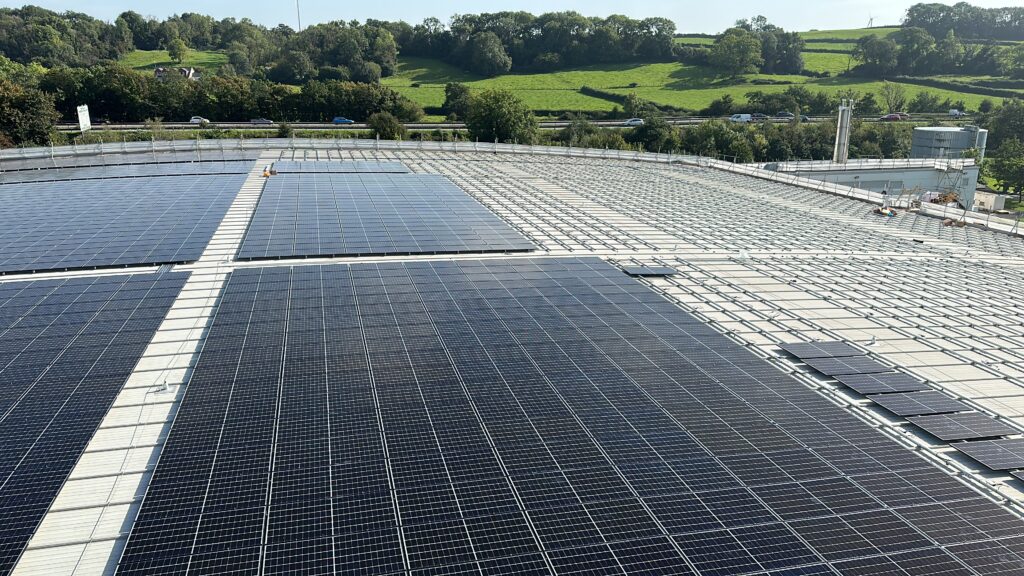
Are Solar Panels Worth It for Commercial Property?
Yes, solar panels are worth it for most commercial properties, especially in the long term. The benefits include:
✅ Cost Savings: Once installed, solar panels can significantly reduce your energy bills. By generating your own electricity, your business can avoid the rising costs of electricity from traditional energy suppliers. Many businesses see immediate reductions in their energy expenses.
✅ Return on Investment (ROI): Most commercial solar systems pay for themselves within 3 to 7 years, depending on energy consumption and system size. After the initial cost is recovered, your business will continue to benefit from free electricity for decades, contributing to higher profitability.
✅ Energy Independence: Solar energy reduces reliance on fluctuating energy prices and grid power, providing more predictable energy costs.
✅ Government Incentives: In the UK, businesses may be eligible for the Smart Export Guarantee (SEG), which allows them to sell excess solar energy back to the grid. The current rate for export is between 0.10pence to 0.18pence per kWh exported, generating additional income.
✅ Environmental Impact: Using renewable energy reduces your carbon footprint and can incorporate carbon offsetting. This positions your business as an environmentally responsible entity, increasing your reputation and providing a valuable marketing advantage.
✅ Increased Property Value: Solar installations can boost the value of commercial properties by making them more energy-efficient and cost-effective for future tenants or owners.
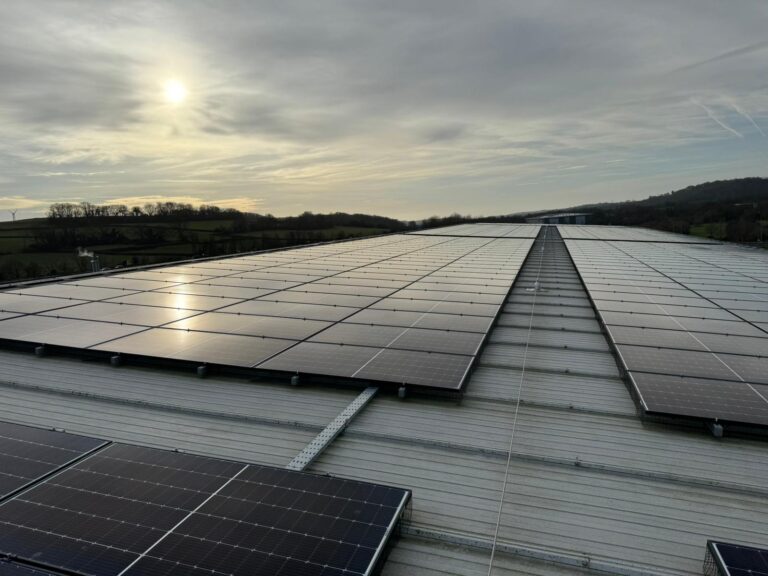
REGO - Renewable Energy Guarantees Of Origin Commercial Benefits?
Businesses can take advantage of the REGO scheme to strengthen their sustainability efforts. Managed by Ofgem on behalf of the Department for Business, Energy, and Industrial Strategy (BEIS), this certification program verifies energy suppliers based on the amount of renewable energy they generate. Suppliers receive a REGO certificate for every 1,000 units (or 1 megawatt hour) of renewable energy produced, confirming the renewable share in their energy mix.
For businesses committed to sustainability, switching to a green energy tariff from suppliers with REGO certification demonstrates a clear commitment to renewable energy. This aligns with corporate social responsibility (CSR) goals and improves brand reputation in an increasingly eco-conscious marketplace.
Solar Panel Tax rebates in the uk
The UK’s commitment to combating climate change through its Net Zero Strategy offers businesses financial incentives, such as tax rebates, for installing solar panels. These rebates allow companies to reduce their tax liabilities, making solar investments more attractive.
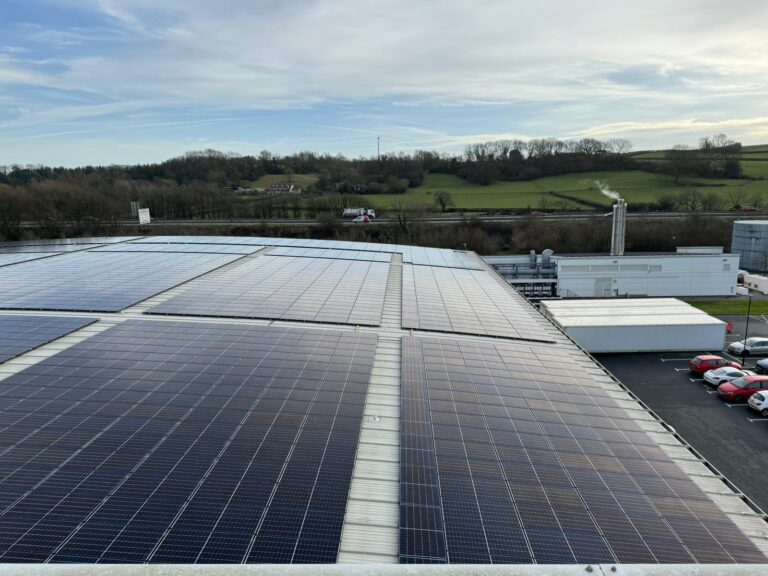
Annual Investment Allowance (AIA)
UK companies can take advantage of the Annual Investment Allowance (AIA), which permits the deduction of the full cost of qualifying investments from their Corporation Tax bill. Solar panels are eligible under this allowance, allowing businesses to offset the installation cost against taxes.
However, the AIA also covers other assets like machinery, vehicles, and equipment. If a company has already claimed the £1 million cap on these assets, they will need to consider alternative allowances for solar panels.
First Year Allowance
To support businesses post-COVID, the government introduced the 50% First Year Allowance (FYA), which has been extended until March 2026. Under this scheme, companies can deduct 50% of the cost of solar panel installations from their Corporation Tax bill in the first year, with an additional 6% deductible in subsequent years. This provides businesses with substantial long-term tax savings.
Eligibility for the Allowance
Any business that pays Corporation Tax whether it operates a farm, factory, or other commercial enterprises can benefit from these tax incentives. Installing solar panels helps reduce operational costs while offering a sustainable solution for energy consumption.
By taking advantage of these tax allowances and incorporating renewable energy, businesses can reduce their carbon footprint, enhance their green credentials through carbon offsetting, and enjoy long-term financial benefits.
Conclusion
Investing in solar panels for your commercial building is a smart business decision, offering multiple benefits such as creating an additional income stream, increasing energy independence, and reducing your environmental impact. Whether you have a flat roof or high energy demands, commercial solar solutions can be customised to meet your specific requirements.
Want to explore your options? Contact us today for a FREE desktop or onsite consultation and find out how much your business can save with solar energy!
